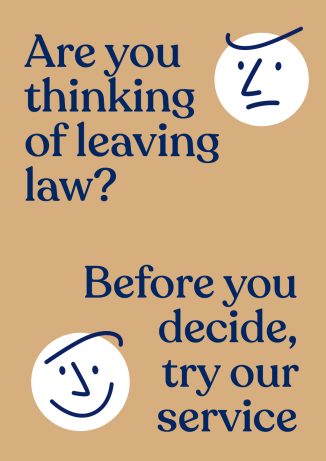Do you fear being ‘found out’ for not knowing what you’re doing at work? Or for being incompetent? Do you ruminate about how you landed your current role? It had to be luck, right? Or maybe just total bluff? And now it’s only a matter of time before you’re exposed and the house of cards comes crashing down? They’re onto me! They’re going to find out that I’m a fraud!
Experiencing the imposter phenomenon
You feel like a fraud, a phony, a sham, a fake, or a pretender. Like Mike Ross from Suits. But you’re not actually any of those things. You’re completely above board. You have one or more University degrees, a practising certificate to prove you’re a fit and proper person, you’ve secured and retained work as a lawyer, and maybe even undertaken extra study to attain accreditation as a specialist in your chosen field or as a mediator. But, despite all of that evidence to the contrary, you still feel like an imposter. Why? Underestimating your abilities and feeling like you are undeserving of your role, your success or your accomplishments is a niche form of self-doubt that affects a disproportionate number of high-achieving, perfectionist types among us. It’s called Imposter Syndrome.
Some people contend that Imposter Syndrome is a by-product of low self-esteem. But, it’s not the whole story. The remarkable and utterly bizarre thing about Imposter Syndrome is that it doesn’t matter how ostensibly successful or well-regarded you are, or how well educated you are, or how many compliments you receive, how supportive your environment is or how much experience you have working in your chosen field – the doubt hangs on tightly. And the doubt is paralysing – and can lead to worry, anxiety, panic, hopelessness, despondency and burnout.
The effects are not all bad
If the fact that these fraudulent feelings have a name (which means that you’re absolutely not alone in feeling the way you do) doesn’t provide you with some comfort, then perhaps this will. The effects of Imposter Syndrome are not all bad.
The legal profession is competitive, hierarchical and high pressure. It’s part of the human condition to ponder where we sit as against our peers. A small dose of comparison, and a tiny bit of self-doubt and reflection is okay. Just not the kind that leaves us feeling really bad about ourselves. Which type are you in the habit of undertaking?
Having a generous sprinkling of humility is a key driver for learning and development in the workplace (and in non-work spaces, too). It means that we acknowledge what we don’t know, where we could improve, and most importantly, when to ask for help. An openness and willingness to learn be a catalyst for our most significant achievements.
But, the more extreme end of imposter-type feelings is more perilous. When self-doubt is all consuming, you might try to suppress your fear, worry and anxiety by overworking and overcompensating for your perceived incompetence. You might start to feel isolated and withdraw because you think you’re the only one experiencing self-doubt. You might hold yourself to continuously unsustainable and unrealistic expectations – “I should know how to do this without asking for help” or “If I was smart enough, I’d be able to do this”. You might even try to numb your feelings with other self-destructive habits. These are all hazardous to one’s wellbeing, and put you at heightened risk of burnout and experiences of poor mental health.
It comes down to striking a balance between having belief in your capabilities, and knowing when it’s commonplace and expected to be feeling a little out of your depth. Self-doubt creeping in when you’re faced with a complex set of facts in a new matter, appearing in court for the first time (or any time, really), or when you’re in the infancy of acquiring a new skill is all really normal.
No one likes a know-it-all
The opposite of Imposter Syndrome is the ‘Dunning-Kruger effect’. It’s the definition for when people overestimate their abilities. A type of false superiority. Where confidence doesn’t necessarily equate to one’s capabilities or competency. I’m sure we all know one or more of the Dunning-Kruger types.
Having too much confidence may mean you’re closed minded and unwilling to see areas for improvement or growth. It also means you lack the awareness required to acknowledge what it is you don’t know and where you might need to seek counsel, support or guidance from others. Particularly in the practice of law which is ever evolving, changing and adapting, the Dunning-Kruger is a risky place to stay. We definitely don’t want that pendulum to swing too far from Imposter Syndrome towards Dunning Kruger’s way.
Circuit breakers
While there is no cure per se for Imposter Syndrome, there are plenty of ways to keep it in check. Here’s a non-exhaustive list of a few things to try, and see if they work for you.
- You’re a lawyer. Lawyers thrive on facts, evidence and arguments. So, what’s the evidence for the fraudulent feelings you’ve been having? Is there any?
- How do others see you? Perhaps you’ve received some feedback, or a complimentary email you can refer to. How do those words and comments differ from how you see yourself, and how you speak to yourself?
- Tell a trusted colleague, or a professional about what’s going on for you. Let’s start to normalise this phenomenon. There’s nothing ‘wrong’ with you.
- Keep track of when you feel your most ‘fraudulent’. Cultivate a sense of awareness around the situations. Does it arise when things are going well? Does it arise when you feel insecure or inferior to your colleagues’ achievements?
- Start accepting compliments without downplaying your accomplishments. “Thank you! I worked really hard to build rapport with that client.”
- Practice the good kind of self-talk. Mirror the language you would use if you were speaking to a friend or colleague experiencing similar feelings.
- Are your expectations of yourself realistic? Do they need some adjustment? Do you sneakily move the goal posts when you have achieved something worthy of celebrating?
- Have acceptance around your mistakes (because they will happen) and have trust that your mistakes don’t define you, your worth, or your capabilities. Share your mistakes openly with a trusted colleague, or a professional.
- Aim for progress, not perfection.
There might be other tools and strategies that you find effective. Find what works for you, knowing that what might be useful on one occasion might not work on the next. Continue to be open to explore other avenues and approaches. Share your knowledge and experiences with those around you.
What’s in the name?
Because it doesn’t entail a clinical diagnosis, some prefer the term ‘Imposter Experience” or “Imposter Phenomenon” over the more well-known and widely used ‘Imposter Syndrome’. The name isn’t the important thing here though. The key takeaway is that these imposter feelings are experienced by many, regardless of their status, title or admission date. It’s time we opened a shame and judgement free dialogue within our work cultures for people to connect and discuss. Better add it to your firm’s upcoming meeting agenda.





